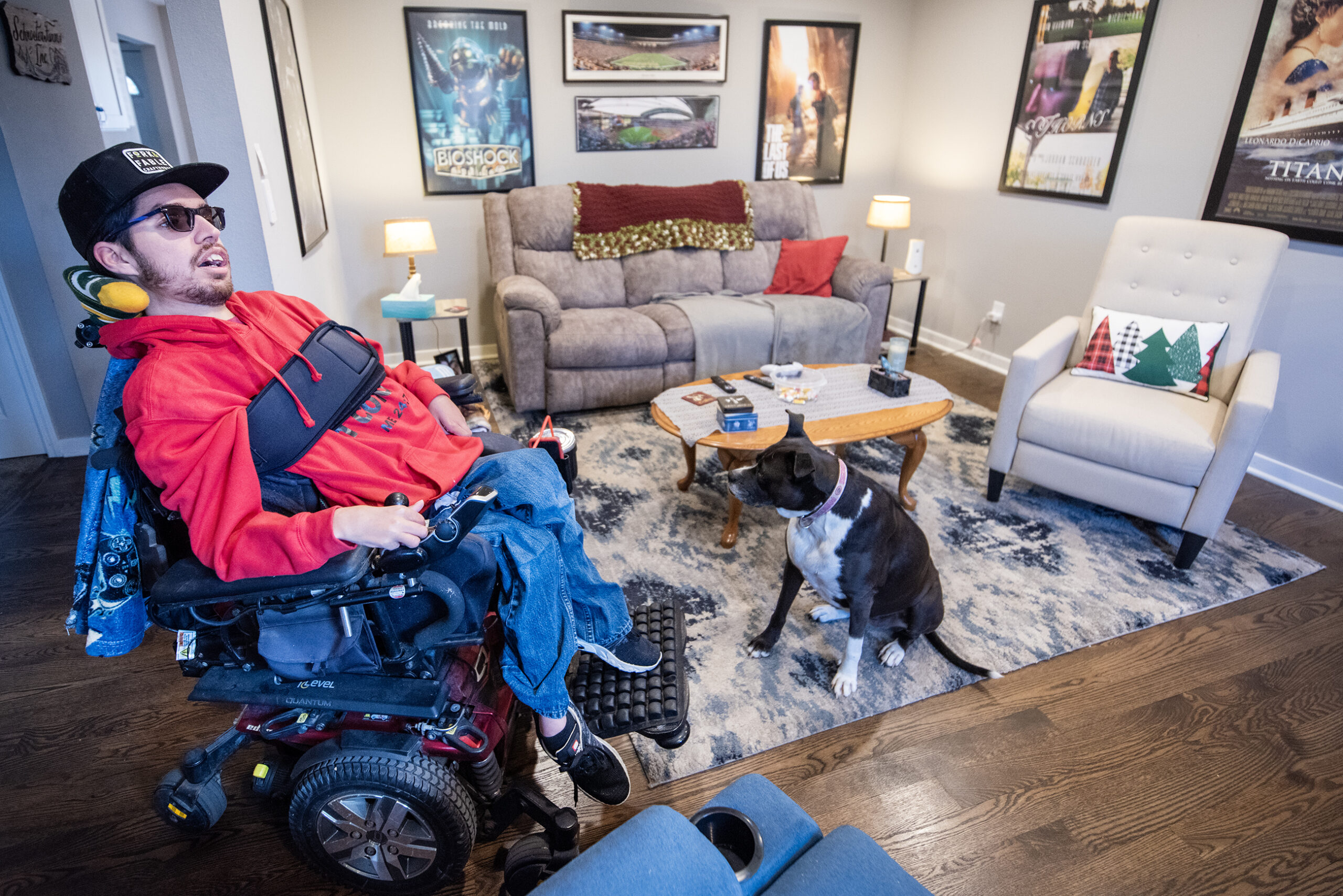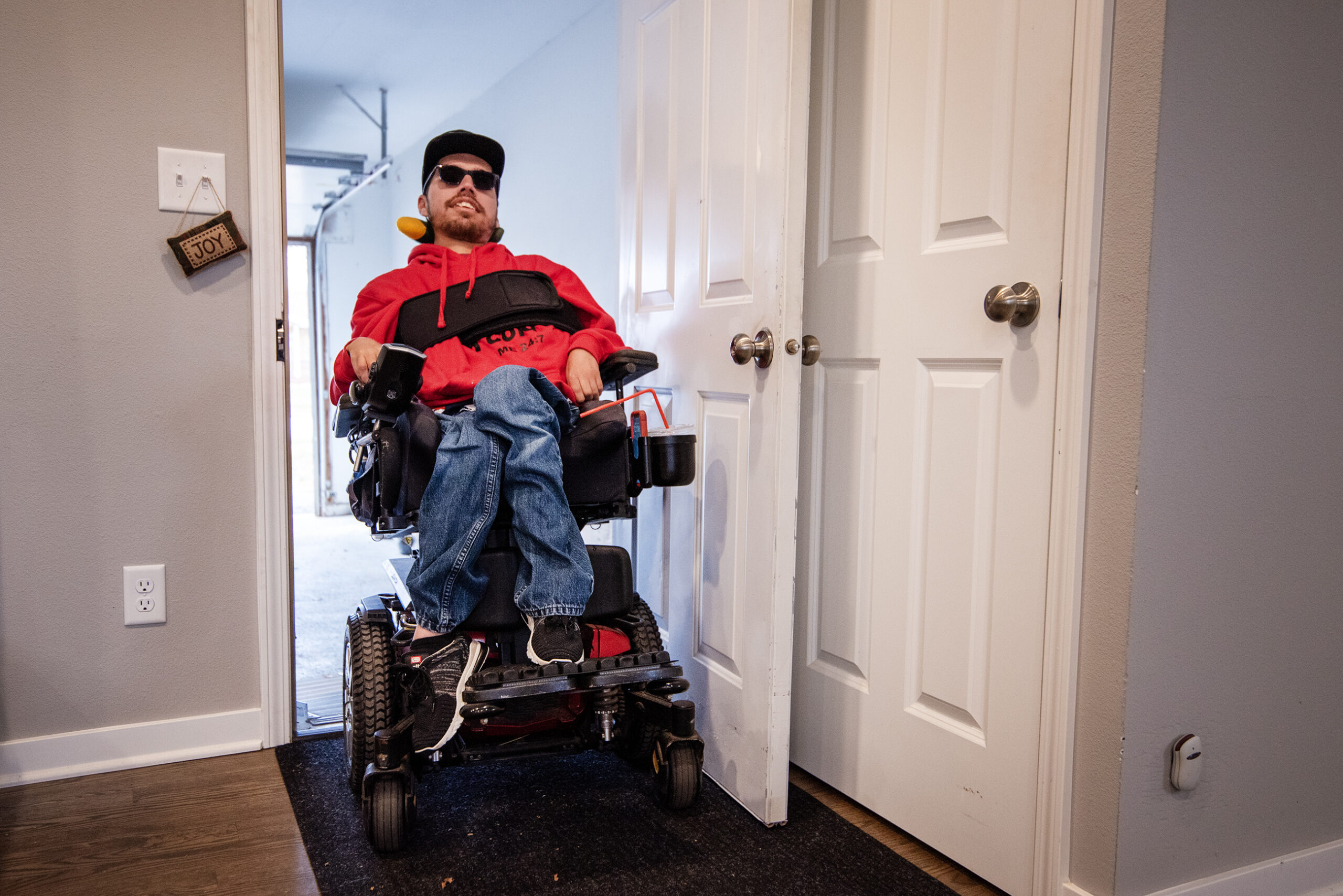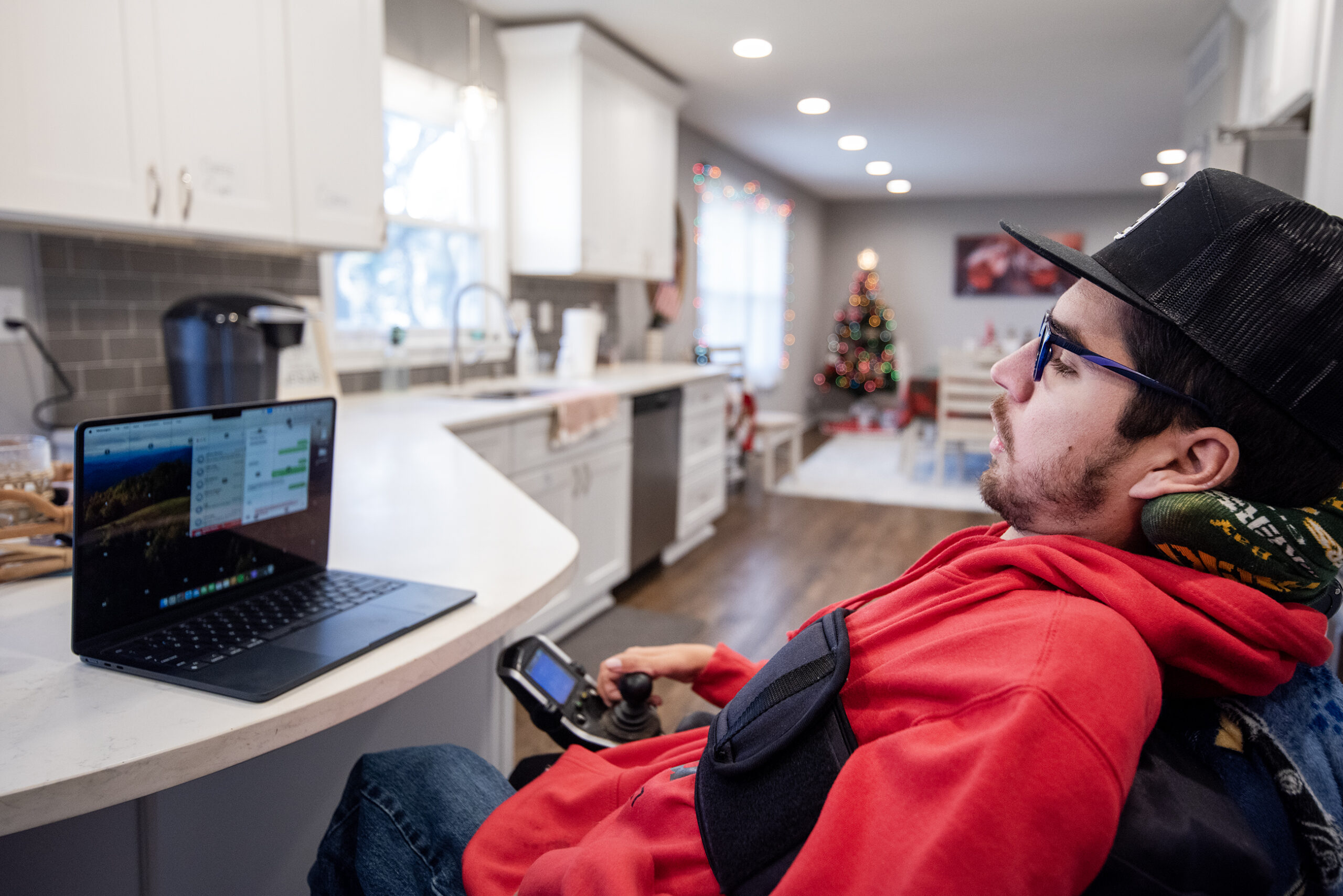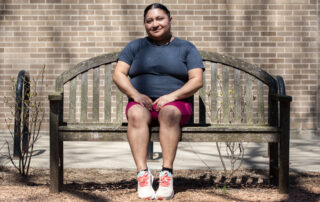Earning a masters degree and launching a business is no easy feat. WPR’s Margaret Faust met Jordan Schroeter of Grafton to see how he did it while also living with a rare, genetic and progressive neuromuscular disorder.
==
On a quiet residential street in Grafton, Wisconsin, 30-year-old Jordan Schroeter coasted along in his motorized wheelchair on a brisk afternoon. These walks, which he usually takes alone or with his dog Josie, are routine.
“Going for a walk is like going for a prayer walk. I go out and talk to God. This is usually when I really have my seclusion time with the Lord,” Schroeter said.

Jordan Schroeter travels around his neighborhood using his wheelchair Monday, Dec. 11, 2023, in Grafton, Wis. (Angela Major/WPR)
Schroeter has type 1 spinal muscular atrophy, a genetic disease where muscles don’t respond to signals from motor neurons. The muscles gradually weaken and shrink from inactivity.
Schroeter was never able to walk, but he remembers rolling around on his back when he was young. But by the time he started school, he couldn’t raise his hand in class. Gradually, he lost most voluntary movement in his limbs — only slight movements remain, concentrated mostly in his hands.
“When you’re sitting down and you can’t barely move, you feel trapped, like you’re always watching and spectating. You feel like you’re never really like actively participating,” Schroeter said.
As the disease progressed, he felt like he was losing his autonomy and missing out on typical milestones like playing sports and dancing with girls.
“I’m praying and praying for these things, but none of the things I wanted at the time, I thought, were being answered,” Schroeter said. “They were being answered, but in different ways I did not yet understand.”

Jordan Schroeter sits with his family’s dog in their living room Monday, Dec. 11, 2023, in Grafton, Wis. (Angela Major/WPR)
Schroeter was born and raised as a Pentecostal Christian. He went to church with his family every Sunday and the lessons he learned were reinforced at home. He made his first group of good friends through church.
His faith inspired him to earn a master’s degree of divinity from Liberty University through their online program. He wanted a full-time career as an ordained minister.
“I never found my church staff position. I don’t think the church in general is ready yet for disabled pastors,” Schroeter said.
In 2020 at the age of 27, Schroeter said he was not where he wanted to be in life. He thought he’d have a career in ministry, a wife, and plans to start a family. His frustration drove him to a dark place.
He said in a moment a weakness, he asked himself a question that would mark a turning point in his life:
“What do I have left? Literally my voice. Okay, I can speak.”

Jordan Schroeter enters his home, which is equipped with ramps for accessibility, on Monday, Dec. 11, 2023, in Grafton, Wis. (Angela Major/WPR)
Schroeter harnessed the power of his voice. He could speak out about being a person with a disability. He felt inspired to start a motivational speaking business. It’s still in the planning stages, but he has a vision for the end result.
“Tony Robbins, but crippled. I want to help people get up and walk into their destiny that God has planned for them. They just don’t know it yet,” Schroeter said.
Schroeter also hosts a podcast, “Handischlapped,” where he talks about everything from disabilities to pop culture.
He’s also written and directed a number of short films. “Rose of Sharon,” his most recent work, is about a newly widowed mother who must cope with being the sole caregiver of her disabled teenage son. It won two awards from the MLC Awards, a film festival in Green Bay, Wisconsin.
Through all his media, Schroeter hopes to lift others up.
“A bad day doesn’t equal a bad life, you know? You have a choice and it doesn’t matter the circumstance, it’s how you respond to the circumstances. It’s not exactly a new idea, but everyone for the rest of mankind is gonna need that reminder and that motivation,” Schroeter said.

Jordan Schroeter uses his laptop in the kitchen Monday, Dec. 11, 2023, in Grafton, Wis. (Angela Major/WPR)
This boost of confidence and determination has left Schroeter with room to explore his passions. He performs stand-up comedy, studies the Bible with his family, and plays video games in his downtime. “Bio Shock” is his favorite game.
To do this, he must use his voice. From his wheelchair in his living room, he tells a smart speaker to turn on the TV and change the input.
“Just like that it’ll start the gaming console. It’s one less thing to worry about,” Schroeter said.
As he looks ahead to this next stage of life, Schroeter said he wants to focus on his talents and help others take hold of their potential.
“I focus on what I can and stop focusing on the cannot,” Schroeter said.











